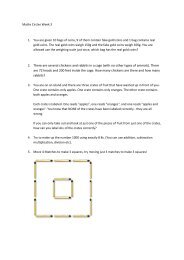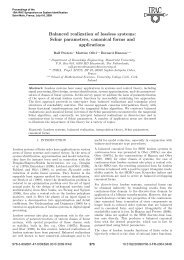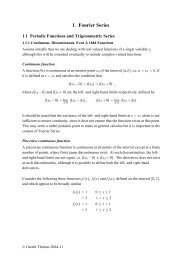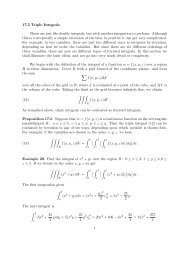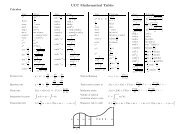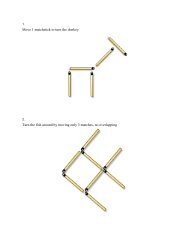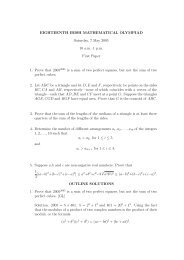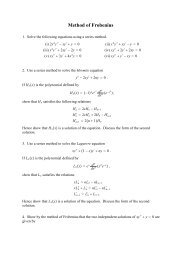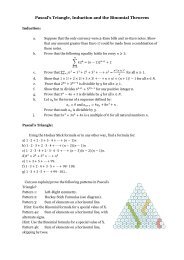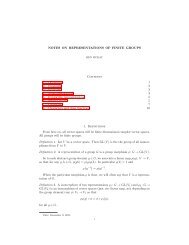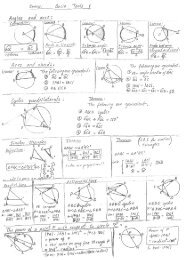Fourier Transforms
Fourier Transforms
Fourier Transforms
You also want an ePaper? Increase the reach of your titles
YUMPU automatically turns print PDFs into web optimized ePapers that Google loves.
x ≥ 0, resulting in an integrand that is always positive. As x n is positive and increaseswith |x|, then x must tend to zero very quickly with increasing x for the integral to give azero value and if x ≠ 0, then the only non-zero contribution can be in the vicinity ofx 0 and this must be of very small width if it is to produce a zero integral.A more precise approach is provided via the definition of a generalised function. Considerthe following sequence of good functions,g n x n exp−nx 2 ,in which the function defining the sequence becomes greater in value at x 0 and narrowerin width about x 0asn → . It can also be shown that gn xdx 1 for all n, sothat−the sequence is area preserving and in agreement with the condition x dx 1−established above. This serves as a possible sequence of good functions for the Dirac deltafunction, confirming that it is a generalised function.If x → 0 sufficiently quickly as |x| → then we can consider its derivative ′ x andobtain its properties using integration by parts,− ′ xfx dx − −xf ′ x dx − f ′ 0 (3.1.3)and more generally− n xfx dx −1 n f n 0 . (3.1.4)There are two other functions that are useful in the application of <strong>Fourier</strong> theories; these arethe Heaviside Unit Function and the Sign Function. Both can be considered to begeneralised functions.Heaviside Unit Function. ThisisdefinedbyHx 1 x 0 0 x ≤ 0 (3.1.5)and this is useful in stipulating the range of a functions. There is no universal definition ofHx and the lack of consistency centres on the value at x 0; all definitions agree whenx ≠ 0.ExampleConsider the function defined by fx 1for|x| a and fx 0for|x| ≥ a. This can bewritten in terms of a single definition on −, as3



